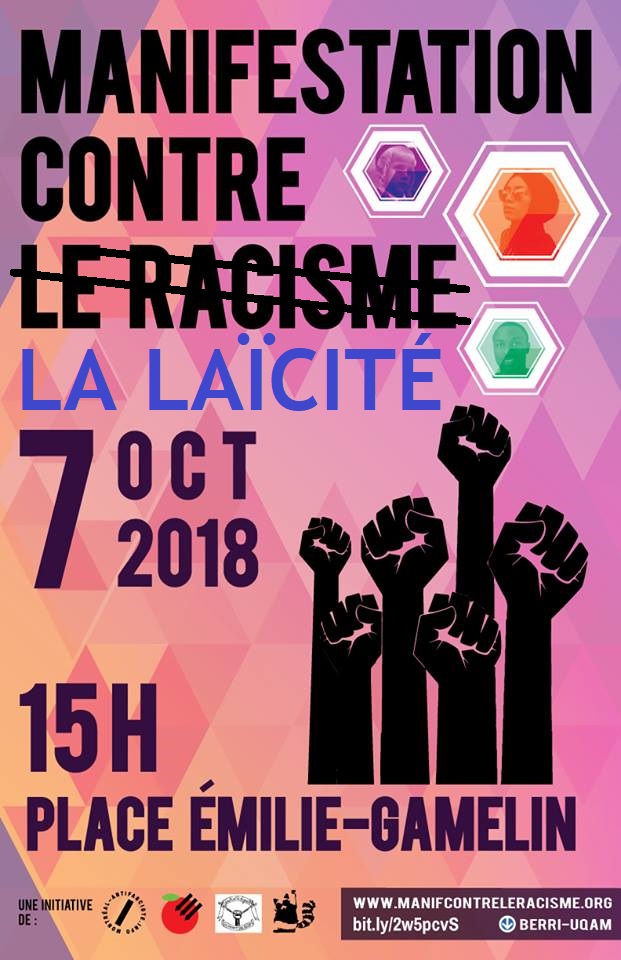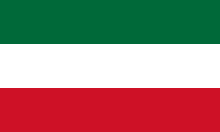2018-09-11, Updated 2018-09-12
In this blog I present three recent articles, published in English-language media, each of which denigrates Quebec and the Québécois in a spurious, dishonest and sometimes slanderous manner.
Sommaire en français
Dans le présent blogue je décris trois récents articles, parus dans des médias anglophones, dont chacun dénigre le Québec et les Québécois, et ce, d’une manière fallacieuse, malhonnête et parfois diffamatoire.
Quebec-bashing is a very popular sport in Canada outside (and sometimes inside) Quebec. Ever since the British conquest of New France some 250 years ago, the Québécois have been the whipping boys and girls of Canada, the poor, weird people, from a priest-ridden region, who talk funny and fail to practice the obviously superior religion of Anglicanism. For two centuries, poverty and second-class (or lower) status were the norm for the majority of Québécois. A few decades ago, in the Montreal area, French-speakers earned less than all major immigrant groups who in turn earned less than English-speakers.
Of course, things have changed greatly since then. The change has been especially significant during the last half-century, and for that, the Québécois themselves can take most of the credit. With the Quiet Revolution, Quebec shook off the yoke of Roman Catholic domination (which had been maintained by the British conqueror for pragmatic reasons of social control) and made dramatic progress politically, socially and economically.
With that major rite of passage, that movement towards collective maturity, the idea of forming an independent nation, preferably a secular republic, became popular. But, not suprisingly, the Quebec independence movement scared the fucking bejesus out of other Canadians, who reacted strongly against it, sometimes with rational argument, but more often than not with panic and bitter resentment. And thus, a new wave of Quebec-bashing was born, this time adding fear to the already overwhelming contempt which had always been there. According to the bigots who engage in this sport of Quebec-bashing, Quebec nationalists in general, and independentists in particular, are “racist,” “xenophobic” or worse. And these slurs have simply been recycled in the context of Quebec’s recent attempts to complete the secularization process which it began a half-century or more ago.
This all came to a head in 2013-2014 when the independentist Quebec government of the time proposed a Charter of Secularism. The identitarian left, allied with political Islam, has added its poisonous voice to the chorus of Quebec bashers and haters. The propaganda offensive is overwhelming. But resistance is strong too.
The following are three examples of articles which have appeared recently in the English-language media and which continue this ignoble tradition of contempt for the Québécois.
Slander and Misconceptions in The Guardian
Published in the Guardian (UK) on 2018-07-12, Martin Patriquin asks the extremely loaded question How did Quebec’s nationalist movement become so white? in an article which is so tendentious that it would take dozens of pages to refute all of its deliberate misconceptions and slanderous implications. Patriquin trots out the old chestnut of Jacques Parizeau’s alleged racism, something I deconstructed in a previous blog, and claims that Parizeau initiated a “drift into ethnic nationalism” culminating in the Quebec Charter of Secularism proposed in 2013 (and which Patriquin incorrectly calls the “Quebec values charter”). Patriquin thus indulges in the same dishonest ploy used by the enemies of secularism: deliberately conflating religion with race and ethnicity. He even claims that that Charter was “designed to pit multicultural Montreal against the rest of the province” and accuses the PQ of promoting “scorched earth nationalism!” Huh? What the hell has Patriquin been smoking? He refuses to make the necessary distinction between multiculturalism (a divisive anti-secular ideology unpopular in Quebec) and cultural diversity (a fact of life welcomed by Quebeckers).
Patriquin thus indulges in the same dishonest ploy used by the enemies of secularism: deliberately conflating religion with race and ethnicity.
Patriquin complains about “oodles of crucifixes dotting Quebec’s landscape.” Apparently he is living in 1950, or perhaps 1850. Arguably Patriquin’s worst comment is his assertion that “the PQ’s current leader [Jean-François Lisée] echoes the sentiments of America’s 45th president.” This is the sort of denigration we could expect from Justin Trudeau, and indeed did get a few years ago, shortly after Trudeau was elected.
Patriquin would like us to believe that the Quebec independence movement has lost steam because it is “so white” and has failed to attract new blood, in particular immigrants. But he ignores several major reasons why the main independentist party, the Parti québécois (PQ) has dropped in popularity: (1) its very success, in particular the success of Bill 101, which offers some protection to the French language and thus makes independence appear less necessary; (2) the competition of a new and regressive (i.e. Islamophilic) leftist and ostensibly independantist party, Québec Solidaire (QS), which has split the independentist vote by sapping the PQ of its left-wing; and (3) Ideologues like Patriquin himself (and QS) who have done considerable damage poisoning the waters of political discourse with their intolerant attitude towards nationalism.
Innuendo in Quillette
Commenting on the recent controversy surrounding the play SLĀV which was cancelled by the Montreal Jazz Festival over concerns of so-called cultural appropriation, Dan Delmar misses the point with his Quillette article of 2018-08-14, The Furore Over a Quebec Theatre Production Has Missed the Point. After an introductory nod to the progressive nature of Quebec politics, the article quickly descends into the typical Quebec-bashing rhetoric which associates Quebec nationalism with xenophobia. Like Patriquin, Delmar laments that Quebec is not enamoured of multiculturalism. More on that later.
Like Patriquin, Delmar laments that Quebec is not enamoured of multiculturalism.
Delmar sinks even lower by rehashing the old slanderous idea of a parallel between Quebec nationalists and resentful white Confederates in the Deep South after the American Civil War. He even accuses Québécois of having a “persecution complex.” Given that denigration of Quebeckers is an ongoing, ever-present phenomenon to which Delmar himself is contributing, his admonishments are hypocritical. Delmar claims that Quebeckers have a “blind spot” when it comes to the race question, but it is Delmar who is blind, expecting Quebec to follow the cultural norms of the USA where the race issue is distorted by the horrific history of slavery in that country, whereas Quebec’s history is completely different. Delmar needs to learn that Quebec is not USA-North.
Ignorance and Racism in the Washington Post
The two examples above are bad enough, but the Grand Prize for Quebec-bashing goes to J. J. McCullough for his diatribe Maxime Bernier’s rebellion comes from the right to upend Canadian politics in the Washington Post on 2018-08-23. Bernier recently issued a series of tweets criticizing Justin Trudeau’s cult-like obsession with the buzzword “diversity” and his “extreme multiculturalism” (which I have discussed briefly in a previous blog). Like Patriquin and Delmar, McCullough cannot abide criticism of multiculturalism.
It gets worse. McCullough goes completely off the rails when he writes:
Bernier is a uniquely flawed vehicle for this message. As a Quebecker, he is an ambassador of a province whose French chauvinism represents the most striking refusal of any Canadian community to conform to the norms of the country’s English majority. A thickly accented French Canadian who complains about “people who refuse to integrate into our society and want to live apart in their ghetto” inevitably opens himself to charges of hypocrisy, […]”
Is it possible that McCullough could be so astoundingly ignorant that he does not even know that Canada has two official languages, and that French is one of them?
Is it possible that McCullough could be so astoundingly ignorant that he does not even know that Canada has two official languages, and that French is one of them? On what basis does McCullough assume that Bernier or any other Francophone Québécois has some obligation to “conform to the norms of the country’s English majority?” If Bernier’s bilingualism is mitigated by a less than perfect command of the English language, in what way does that invalidate his opinion? McCullough’s use of the expression “French chauvinism” is hypocrisy of the most extreme order, given his blatant English chauvinism and ethnocentrism. Comfortable in his ignorance, he reduces Anglophone culture to a monoculture to which all must slavishly conform.
A Common Thread
There is a common thread running through all three articles: a condemnation of the Québécois for not supporting multiculturalism. The three authors blather on about multiculturalism, blissfully ignorant of valid critiques of that ideology which promotes ghettoization and impedes the integration of immigrants.
Racism is a widespread phenomenon and probably exists in all societies, including Quebec. But if the three authors discussed above were truly concerned about that issue, they would have addressed the very problematic nature of Canadian multiculturalism which is not a panacea for racism—as some ideologues maintain—but is in reality a close cousin of racism. Multiculturalism is not a synonym for cultural diversity but rather one way of managing such diversity, and not a very good one at that. Secularism is a different way, a far superior alternative.
The problems with multiculturalism are well known. Already a quarter century ago, Neil Bissoondath gave us a useful critique: Selling Illusions: The Cult of Multiculturalism in Canada. Maryam Namazie, Kenan Malik, Trevor Phillips and others have criticized it extensively. But Patriquin, Delmar and McCullough ignore the obvious fact that multiculturalism has become an ideology promoting cultural relativism which should be rejected. This ideology remains a sacred cow in Canada outside Quebec for various reasons, one being that it is a convenient excuse for bigotry against the Québécois who, less naïve, less monarchist and more (small-r) republican than most Canadians, retain a healthy scepticism with respect to it.
Summing Up
Trashing Quebec and Quebec nationalists has the important function of denigrating both secularism and national sovereignty, both of which are necessary for democracy and both of which are under attack from Islamists, neoliberals and their multiculturalist allies. Whatever the intentions of the three authors may be, they objectively promote that reactionary programme.
In fact, I find the expression “Quebec-bashing” a bit too mild. I hesitate to use the term “racism” because that epithet has been so over-used and abused by regressive pseudo-leftists—and in particular by Quebec-bashers. But if the shoe fits… The degree of contempt often found in writings such as those discussed above sometimes reaches the level of racism; that is the case with McCullough in my opinion. Here I am using the term racism in the more general sense of ethnic bigotry as explained in a previous blog. By recycling age-old Anglo-bigotry, Patriquin, Delmar and McCullough have done their part to poison political debate within Canada and without, while displaying their ignorance of the salient issues.
Next blog: Les extrêmes se touchent : Twitter censure une caricature de Charb



